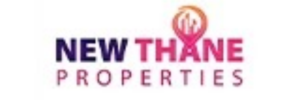Search Engine
Optimization
Search Engine
Optimization
Creating engaging and effective content for social media management involves understanding your target audience, staying updated with trends, and maintaining a consistent brand voice. Here are some content ideas for various platforms.
On Page Optimization
On-page optimization is a crucial aspect of search engine optimization (SEO) that involves optimizing individual web pages to improve their search engine rankings and enhance the overall user experience. Effective on-page optimization can contribute to better visibility in search engine results, increased organic traffic, and a higher likelihood of achieving specific goals, such as conversions or engagement. Here are key elements and best practices for on-page optimization:
Keyword Research:
- Identify relevant keywords for each page based on your target audience and business goals.
- Use tools like Google Keyword Planner, SEMrush, or Ahrefs to find high-performing keywords.
Title Tags:
- Craft compelling and descriptive title tags (up to 60 characters) that include your primary keyword.
- Make titles unique for each page to avoid duplicate content issues.
Meta Descriptions:
- Write engaging meta descriptions (around 160 characters) that provide a concise summary of the page’s content and encourage click-throughs.
URL Structure:
- Create clean and SEO-friendly URLs that include relevant keywords and are easy for both users and search engines to understand.
- Avoid using dynamic parameters when possible.
Header Tags (H1, H2, H3, etc.):
- Use header tags to structure your content hierarchically.
- Include your primary keyword in the H1 tag and use other header tags for subheadings.
Keyword Placement:
- Place your target keywords naturally throughout the content, including in the first paragraph.
- Avoid keyword stuffing; focus on providing valuable and relevant content.
Content Quality:
- Create high-quality, valuable, and relevant content that satisfies user intent.
- Use a mix of text, images, and other multimedia elements to enhance user experience.
Internal Linking:
- Link to other relevant pages within your website to improve navigation and help search engines understand the structure of your site.
- Use descriptive anchor text for internal links.
Image Optimization:
- Optimize images by using descriptive file names and adding alt text that includes relevant keywords.
- Compress images to improve page load speed.
Mobile Optimization:
- Ensure your website is mobile-friendly, as mobile optimization is a significant ranking factor.
- Test your pages using Google’s Mobile-Friendly Test.
Page Speed:
- Optimize page loading times by minimizing CSS and JavaScript files, using browser caching, and compressing images.
- Faster-loading pages contribute to a better user experience and improved search rankings.
Schema Markup:
- Implement schema markup to provide search engines with additional context about your content, helping them display rich snippets in search results.
User Experience (UX):
- Focus on creating a positive user experience with clear navigation, easy-to-read content, and a clean design.
- Reduce bounce rates by delivering what users are looking for.
Social Meta Tags:
- Optimize social media meta tags to control how your content appears when shared on platforms like Facebook and Twitter.
Regularly monitor and analyze the performance of your pages using tools like Google Analytics and search console data. This allows you to identify areas for improvement and adjust your on-page optimization strategies accordingly.
Off Page Optimization
Off-page optimization refers to the activities and strategies that are implemented outside of your website to improve its visibility and ranking on search engine results pages (SERPs). This aspect of search engine optimization (SEO) focuses on building a strong online presence, enhancing credibility, and increasing the popularity of your website. Here are some key off-page optimization techniques:
-
Link Building:
- Acquiring high-quality backlinks from reputable and relevant websites is crucial for off-page SEO. These backlinks act as “votes of confidence” in the eyes of search engines, indicating that your content is valuable and trustworthy.
-
Social Media Marketing:
- Utilizing social media platforms to promote your content and engage with your audience can indirectly impact your website’s SEO. Social signals (likes, shares, comments) may contribute to search engine algorithms, and social media profiles often appear in search results.
-
Social Bookmarking:
- Submitting your content to social bookmarking sites can help increase its visibility and drive traffic. Examples include Reddit, StumbleUpon, and Digg.
-
Content Marketing:
- Creating high-quality, shareable content is essential for off-page optimization. This could include blog posts, articles, infographics, videos, and other content that resonates with your target audience.
-
Influencer Outreach:
- Collaborating with influencers in your industry can help you reach a larger audience. When influencers share or endorse your content, it can lead to increased visibility and credibility.
-
Guest Blogging:
- Writing and publishing articles on other reputable websites within your niche can help you build relationships, establish authority, and gain backlinks.
-
Online Reputation Management (ORM):
- Monitoring and managing your online reputation is crucial. Responding to reviews, addressing customer feedback, and actively participating in online discussions can positively impact your brand’s image.
-
Local SEO:
- Optimizing your online presence for local searches is essential for businesses with a physical location. This includes creating and optimizing Google My Business profiles, obtaining local citations, and encouraging customer reviews.
-
Forum Participation:
- Engaging in forums and online communities related to your industry can help you establish yourself as an authority and drive traffic to your website.
-
Link Disavowal:
- Regularly monitoring your backlink profile is important. If you identify spammy or low-quality links pointing to your site, you may use the disavow tool to tell search engines to ignore those links.
Remember that a comprehensive SEO strategy involves a combination of both on-page and off-page optimization techniques to achieve the best results. Additionally, staying updated on search engine algorithms and industry trends is crucial for ongoing success in SEO efforts.




